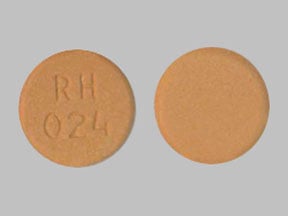
Antacid Regular Strength Coupons & Savings Card – Discount Prices from $3.90
Brand for: Calcium carbonate antacid
My prescription
Edit
500MG, Calcium Carbonate Antacid (30 Tablet Chewables)
Select pharmacy

Walgreens
$3.90
COUPON PRICE
Albertsons
$3.90
COUPON PRICE
Walmart
$10.61
COUPON PRICEAntacid Regular Strength savings card
Show this card to your pharmacist
Walgreens
$3.90
BIN
ID
PCN
GRP
011867
LH5064019E
HT
LABH001
Powered by
Price history for Antacid Regular Strength (brand) & Alum & Mag Hydroxide-simeth (generic)
30 Tablet Chewables, 30ML of 200-200-20MG/5ML
Average retail price for Antacid Regular Strength
Average retail price for Alum & Mag Hydroxide-simeth
Average SaveHealth price for Alum & Mag Hydroxide-simeth
Our price history data is based on aggregated prescription data collected from participating pharmacies in America. Our prescription data updates daily to reflect the latest price changes. If you notice a missing data point, it means there wasn't sufficient data available to generate a monetary value for that date.
Over the last 12 months, the average discount price of Antacid Regular Strength is $7.65 using the SaveHealth savings card. That's an average savings of 57.12% on Antacid Regular Strength with our discount card.
*Retail prices are based on pharmacy claims data, and may not be accurate when we don't have enough claims.
Antacid Regular Strength (Calcium Carbonate Antacid) dosage forms
Dosage Quantity Price from Per unit 500MG 30 Tablet Chewables $7.58 $0.25 500MG 1 Tablet Chewable $7.50 $7.50 500MG 150 Tablet Chewables $7.91 $0.05 500MG 500 Tablet Chewables $8.88 $0.02
| Dosage | Quantity | Price from | Per unit |
|---|---|---|---|
| 500MG | 30 Tablet Chewables | $7.58 | $0.25 |
| 500MG | 1 Tablet Chewable | $7.50 | $7.50 |
| 500MG | 150 Tablet Chewables | $7.91 | $0.05 |
| 500MG | 500 Tablet Chewables | $8.88 | $0.02 |
Can too many antacids make reflux worse?
Yes, taking too many antacids can potentially make reflux worse. Overuse of antacids can lead to a condition called acid rebound, where the stomach produces more acid after the antacid effect wears off. This can exacerbate symptoms of acid reflux. It's important to use antacids as directed and consult a healthcare provider if symptoms persist.
Using the SaveHealth discount card, what is the price of Antacid Regular Strength without insurance?
Using the SaveHealth discount card, the price of Antacid Regular Strength without insurance is $3.90.
What is the price of Antacid Regular Strength at Walgreens?
The price of Antacid Regular Strength at Walgreens is $3.90.
What is the price of Antacid Regular Strength at Walmart?
The price of Antacid Regular Strength at Walmart is $10.61.
